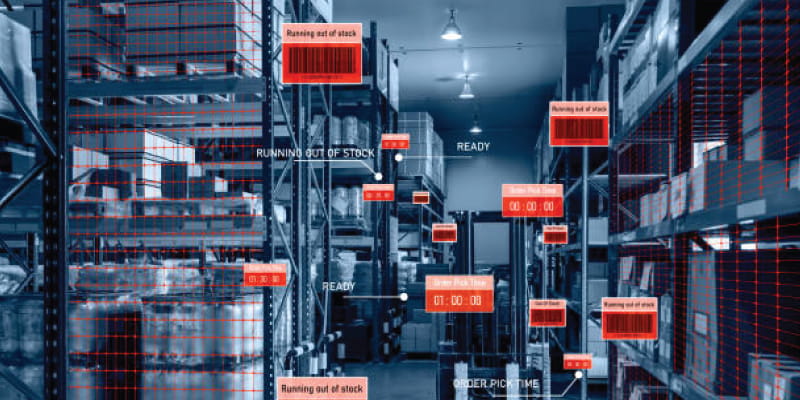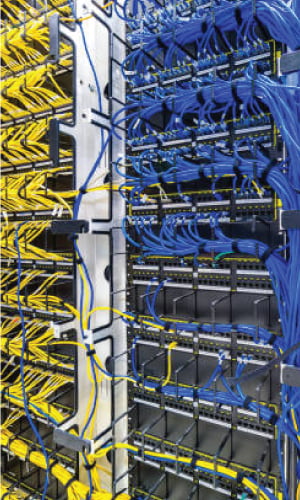Table of Contents
Introduction
From identifying essential components to integrating new advancements, buy computer hardware for your business can be an exciting and rewarding venture. By researching reliable suppliers and setting a budget, you can ensure that you make the best investment for your IT needs. Consulting with IT professionals and evaluating long-term benefits will provide you with expert advice and insights on the best hardware solutions for your business. Making informed decisions and implementing a strategic plan for hardware integration will set the stage for seamless integration and improved productivity. As you monitor and maintain your computer hardware, you can adapt to technological advancements and stay ahead of the competitive business landscape. Get ready to embark on a journey to find the perfect computer hardware for your small business, and watch as it transforms how you operate and succeed.
Understanding the Different Types of Computer Hardware
Get ready to dive into the exciting world of computer hardware! From CPUs to GPUs, RAM to storage, so many fascinating components make up a modern computer. Understanding these different types of hardware is like unlocking the secrets of how your business can harness cutting-edge technology for success.
As you explore the latest advancements in computer hardware, you’ll be amazed at how far technology has come. The speed and efficiency of modern processors, the incredible capacity of solid-state drives, and the stunning graphics capabilities of advanced GPUs are just a few examples of what’s out there. It’s an ever-evolving landscape that promises endless possibilities for your small business.
When considering compatibility with your business needs, think about the tasks and applications your team relies on daily. Whether high-performance computing for data analysis or seamless multitasking for productivity, choosing the proper hardware can mean the difference between simply getting by and thriving in today’s competitive market.
Researching Reliable Suppliers for buy Computer Hardware
There’s no shortage of options for finding the best computer hardware reseller for your small business. It’s an exciting adventure to dive into the world of technology and explore different suppliers, comparing prices and quality to find the perfect fit for your needs. Whether you’re looking for top-of-the-line equipment or more budget-friendly options, taking the time to research will ensure that you make an intelligent investment in your business’s future.
One of the most thrilling parts of this process is reading reviews and testimonials from other small businesses that have buy computer hardware from various suppliers. Hearing about their experiences can offer valuable insight into which companies provide exceptional products and customer service – giving you confidence in your decision-making. Knowing that others have had positive outcomes with certain suppliers can bring excitement as you narrow down your choices.
And let’s not forget about warranties and after-sales support – these are essential aspects to consider when purchasing computer hardware. The thrill of finding a reliable supplier who offers solid warranty coverage and excellent support ensures peace of mind for any potential issues that may arise down the road. With thorough research, exploring different suppliers becomes an exhilarating journey toward equipping your small business with top-notch computer hardware.
Setting a Budget and Determining Hardware Requirements
When setting a budget and determining the hardware requirements for your small business, think of it as an exciting opportunity to empower your company with the latest technology. Take the time to thoroughly analyze the specific IT needs of your business, considering factors such as processing power, storage capacity, and network connectivity. This can help you invest in hardware supporting your operations and growth.
Allocating funds for hardware purchase and installation is like laying down the infrastructure for future success. You can decide where to invest in crucial components such as servers, workstations, or networking equipment by carefully planning your budget. With a clear roadmap, you can confidently purchase the hardware that best suits your business’s unique needs.
It’s also important to look ahead when determining hardware requirements. Forecasting future upgrades and expansion allows you to make informed choices now that will accommodate potential growth down the road. Thinking proactively about scalability ensures that your investment in computer hardware isn’t just meeting current demands but is also positioned to support your small business well into the future.
Consulting with IT Professionals for Expert Advice
Embark on an exhilarating journey towards finding the perfect computer hardware for your small business by consulting with seasoned IT professionals. With their wealth of knowledge and experience, these experts can provide invaluable recommendations to set you on the path to success.
As you immerse yourself in insightful discussions about the best hardware brands and models available, prepare to be blown away. The excitement builds as you gain a deeper understanding of the technical specifications and performance benchmarks, empowering you to make informed decisions that will drive your small business forward.
Elevate your quest for the ideal computer hardware by tapping into the expertise of these IT professionals. Their guidance will undoubtedly steer you towards selecting top-of-the-line equipment that perfectly aligns with your small business needs, ensuring maximum efficiency and productivity.
Evaluating the Long-Term Benefits of Hardware Investment
When investing in computer hardware for your small business, envisioning the long-term benefits is exhilarating. Imagine the impact of upgraded hardware on your team’s productivity and efficiency, paving the way for smoother operations and enhanced output. The thought of unlocking new levels of potential within your business through strategic hardware investments is undoubtedly a thrilling prospect.
Calculating the potential return on investment (ROI) from hardware purchases can be exciting. By envisioning how these investments could lead to cost savings, increased revenue, or improved customer satisfaction over an extended period, you are essentially painting a picture of future success and growth for your business. The excitement builds as you realize how transformative these hardware upgrades could be for your business performance.
Considering the scalability and adaptability of different hardware solutions opens up possibilities for innovation and expansion within your small business. The thrill lies in exploring how these technologies can fuel future growth and evolution, propelling your business forward into new realms of success. Evaluating the long-term benefits sets off a wave of excitement about what lies ahead for your technological infrastructure and your overall business development.
Making Informed Decisions on Hardware Purchases
Are you ready to take your small business to the next level with upgraded hardware? Making informed decisions on hardware purchases is critical to ensuring you get precisely what you need without overspending. Start by creating a checklist of all the required hardware components, from computer processors to networking devices, so that nothing gets overlooked in the purchasing process.
Negotiating deals and customizing hardware packages can be an exciting part of this journey. By engaging with different suppliers and exploring various options, you will find cost-effective solutions and tailor-made packages that suit your specific business needs. Get ready to unleash your bargaining skills and create a unique hardware setup for your small business! Don’t forget about ensuring compatibility! Ensuring the new hardware aligns seamlessly with your existing IT infrastructure is essential. This may involve consulting with your IT team or outsourcing experts for guidance. The efforts put into this phase will pay off when everything comes together flawlessly, making it a smooth transition for both users and operations.
Implementing a Strategic Plan for Hardware Integration
By scheduling the installation and setup of the latest technology, you are positioning your company for success in today’s digital world. This strategic plan will ensure your employees can access cutting-edge hardware to enhance productivity and efficiency.
Training is critical in implementing new hardware within your small business. Enabling your team to utilize and maintain the new equipment fully will streamline operations and foster a tech-savvy work environment. Investing in employee training demonstrates a commitment to their professional development while ensuring they are well-equipped to handle any technical challenges that may arise.
Now it’s time to put the new hardware through its paces! Testing the performance and reliability of the integrated systems will provide valuable insights into how they can support your business goals. This step is essential in identifying any potential issues or fine-tuning configurations to maximize the benefits of your investment in computer hardware.
Monitoring and Maintaining Computer Hardware
When it comes to ensuring the smooth operation of your small business, monitoring and maintaining computer hardware is crucial. By establishing regular maintenance schedules and protocols, you can proactively prevent potential issues and keep your systems running at their best. This means scheduling routine check-ups for all hardware components and implementing a plan for timely updates and upgrades.
In addition to regular maintenance, utilizing monitoring tools for hardware performance can provide valuable insights into the health of your systems. These tools allow you to track key metrics such as temperature, usage levels, and error rates, allowing you to detect any signs of trouble before they escalate into serious problems. By staying on top of these metrics, you can take proactive measures to maintain optimal performance and minimize downtime.
Of course, despite our best efforts, hardware issues may still arise occasionally. In these situations, it’s essential to be prepared with troubleshooting protocols and access to reliable technical support. Whether it’s identifying faulty components or resolving compatibility issues, having a plan in place can help ensure that hardware-related disruptions are swiftly addressed so your business can continue operating without unnecessary interruptions.
Conclusion
The world of computer hardware is constantly evolving, and as a small business owner, it’s essential to stay updated on the latest advancements. Embracing new technologies can give your business a competitive edge and streamline operations. By exploring opportunities for upgrades and enhancements, you can ensure that your business stays ahead of the curve.
Innovations in computer hardware offer exciting possibilities for improving productivity and efficiency. From faster processors to enhanced storage capabilities, these advancements hold the potential to revolutionize the way you conduct business. It’s essential to keep an open mind towards adopting new trends in hardware, as they could play a crucial role in shaping the future success of your small business.
By staying informed about the latest hardware trends, you can make informed decisions about purchasing equipment that will benefit your business in the short and long term. Whether investing in more powerful computers or upgrading networking infrastructure, adapting to technological advancements in computer hardware can position your small business for sustained growth.
FAQs
What essential computer hardware components are needed for a small business?
A small business’s essential computer hardware components include a desktop or laptop computer, monitor, keyboard, mouse, printer, and internet connection.
How do I determine the correct specifications for computer hardware for my small business?
To determine the correct specifications for computer hardware, consider factors such as the nature of your business tasks, required processing power, storage capacity, RAM, and compatibility with software applications.
Should I buy pre-built computer systems or build them myself for my small business?
Buying pre-built computer systems or building them yourself depends on your technical expertise, budget, and time availability. Pre-built systems offer convenience and support while making your own allows customization and potential cost savings.
What are the essential factors to consider when choosing a computer hardware vendor for my small business?
When choosing a computer hardware vendor, essential factors include reputation, customer reviews, warranty and support options, pricing, product quality, and compatibility with your business requirements.
How often should I upgrade or replace computer hardware for my small business?
The frequency of upgrading or replacing computer hardware depends on technological advancements, business growth, changing needs, and budget. It is recommended to assess hardware performance regularly and upgrade when necessary to ensure optimal productivity.














